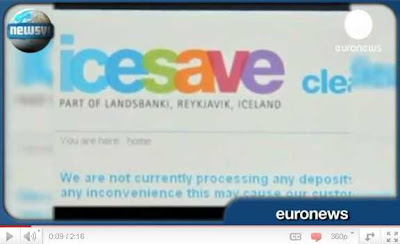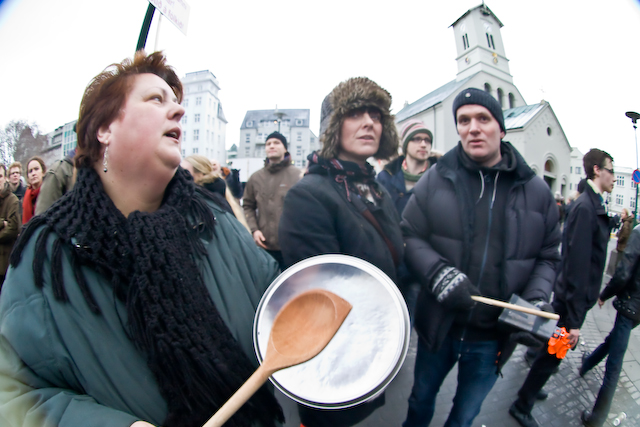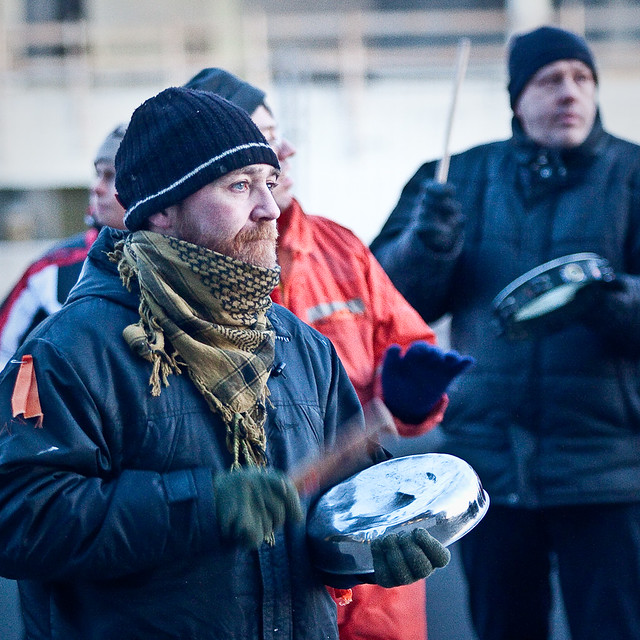Click on the linked picture above to go to a newsy.com video about Dunkin Donuts' filing of papers to begin its IPO public share offering. You can also find the written transcript together with the video at [http://www.newsy.com/videos/dunkin-donuts-announces-plans-to-go-public/].
What is an IPO?
An IPO is an abbreviation using the initial letters of "initial public offering". It is an offering of shares in a company for sale to the public, for the first time by a private company, that will, through this sale, turn into a public company - whose shares, after this IPO, will be publicly traded on the open market.
SOME BACKGROUND ON DUNKIN DONUTS:
Dunkin Donuts is a very large food and beverage franchise chain that specializes in coffee and donuts. It has about 9,700 stores in total: around 3,000 outlets in 30 overseas countries and around 6,700 in the United States. To compare Dunkin Donuts to other multinational F&B franchise chains:
Number of Retail Locations
| FRANCHISE | Overseas | USA | TOTAL | |
| Starbucks coffee | 6000 | 11000 | 17000 | |
| Burger King | 4000 | 8000 | 12000 | |
| Dunkin Donuts | 3000 | 6700 | 9700 | |
| Domino's Pizza | 4000 | 5000 | 9000 | |
| Wendy's hamburgers | 700 | 5900 | 6600 |
(source: dowloadable information from the respective corporate websites)
Dunkin Donut's sister company is the famous Baskin-Robbins ice cream specialty chain, both presently owned by the private holding company Dunkin Brands.
Dunkin Donuts' parent company purchased the second largest donut franchise, Mister Donut back in 1990, and essentially amalgamated it with Dunkin Donuts. The strange thing is, Mister Donut's master franchisee in Japan, retained the rights for Mister Donut throughout Asia, and to this day Mister Donut competes against Dunkin Donuts (which in the U.S. would be its sibling company) in many Asian countries.
This IPO is just one in a long line of transformational corporate maneuvers since DD beginning in 1950:
- The first Dunkin Donuts was opened in 1950 by Bill Rosenberg in Quincy, Massachusetts, now part of metropolitan Boston.
- Bill and his family grew Dunkin Donuts into market leadership for 40 years until it was acquired by the giant British liquor and food group, Allied Lyons, in 1990. (Baskin-Robbins was acquired much earlier by J. Lyons & Co. in 1973, which itself was later merged into Allied Lyons in 1978.)
- Allied Lyons acquired the second-largest donut chain, Mister Donut, in the same year, 1990. Looks like 1990 was a big year in donuts for Allied Lyons!
- Allied Lyons merged with Pedro Domecq (a leading producer of brandy and sherry based in Spain) to become Allied Domecq in 1994.
- Togo's great sandwiches joined the Alled Domecq stable when acquired in 1997.
- Dunkin Brands Inc., for the three restaurant brands, was created as a subsidiary of Allied Domecq in 2004.
- Allied Domecq was acquired by the French spirits giant, Pernod Ricard in 2005.
- Pernod Ricard, later in 2005, sold Dunkin Brands to "a consortium of private equity firms consisting of Bain Capital, The Carlyle Group and Thomas H. Lee Partners". (Togo's was sold off by Dunkin Brands to "Mainsail Partners, a San Francisco−based private equity firm" in 2007 [http://en.wikipedia.org/wiki/Togo's]).
- The private equity owners of Dunkin Brands file for an IPO in May 2011.
It took Bill Rosenberg five years before he started franchising (1955). He was so successful that he was a leading founder of the International Franchise Association another five years later in 1960, an association which calls itself "the world’s oldest and largest organization representing franchising worldwide" [http://www.franchise.org/aboutifa.aspx]. Thus Dunkin Donuts has been central to the franchising industry since its early beginnings. The Association now represents over 1,300 franchising systems in different industry sectors, and includes all the leading franchising names.
Some notes on the language:
The video mentions some popular concepts in modern consumer retail marketing. Let's examine some of them:
- brand loyalty - This is what all brands seek to achieve: the increased tendency to repurchase one particular brand over other competitor brands. "Loyalty" is to follow very strongly and very strictly something regarded as superior. Thus businesses wish to have "loyal" consumers to the name/image/identity of one of their products - that is, loyal consumers towards their "brand".
- in-store promotions - This is part of the promotional, advertising and communications mix of a commercial enterprise - all part of the mix that happens inside the physical retail store. This includes in-store displays, "point-of-sale promotions", product demonstrations, and various "merchandising" activities, and also often includes "sales promotions" inside the store.
- gift cards - Since their general introduction to the United States in the 1990's, gift cards have now become the No. 1 gift choice among Americans [Gift Card Trends at Deloitte.com]. It is a card, usually given as a gift, with some monetary value that can be spent according to the conditions of that card - usually within the one retail company. It has now become a very important marketing tool for retailers and very important to their total sales.
Practice your business English by watching and listening to the video above. For more detailed study, you can read the written transcript at the link given above.
Don't be scared if there is a lot that you don't understand. As long as you learn a little something new, then that is valuable: learning bit by bit is natural learning. By watching and listening, you will also be more exposed to, and more familiar with, various sentence structures and other language techniques used by English speakers.
I'll be happy to receive questions and comments from English learners, and I'll try to answer your queries here about the language in this video. I look forward to your comments!
[A rare opportunity for you to speak, practice, chat and learn English especially for business, finance, law, international economies & trade at the webpage for Mastery English by clicking on the Advisor button below.]









